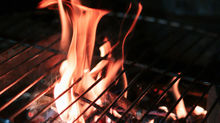Ask the Chef: Food Safety for the holidays and all year around
- Arlene Coco
- Nov 13, 2019
- 3 min read
Updated: Jan 28, 2022

So here is my annual public service announcement for keeping food safe while prepping, cooking and serving.
According to the Center for Disease Control and Prevention, 76 million people a year get sick from unsafe foods. So how can you keep your family safe in the kitchen? Some foods are riskier than others; most pathogens are found in uncooked fresh fruits and vegetables and animal products. How these products are cooked, served, and stored has a lot to do with their safety.
With the holidays coming up in the next few months, food preparation is in the forefront of the family traditions. Buffets are a great way for family and friends to get together and celebrate, but this way of serving food can be dangerous, and you run the risk of having some “uninvited” guests--bacteria that can cause food borne illness. The best way to ward off these uninvited guests is to practice some simple basic rules of food safety.
When you bring your turkey home from the grocery store or butcher, you want to store it at the bottom of your refrigerator, otherwise raw poultry juice can cross-contaminate into other foods.
Hand washing is one of the most important things you can do to keep from spreading germs. When do you wash your hands? Before you start cooking, after touching pets, and after you have touched any raw meat, seafood, or poultry. Keep your counters clean with a bleach water solution of one capful of bleach per gallon of water.
You can make sure you cook all your meats thoroughly by using a bi-metallic stem instant read thermometer. For turkey, take the temperature in a couple of places to make sure it’s evenly cooked.
After the feast is over and it’s time to put the leftovers away, store your foods in shallow containers. This will encourage cooling within the proper amount of time. In a professional kitchen, we keep all of our food out of the temperature danger zone. This means holding it at above 135F or below 41F. Most dangerous pathogens cannot be smelled or tasted, so you have to be diligent about preventing them. Remember one of the golden rules of the kitchen: “When in doubt, throw it out!”
Here are some tips to help keep your kitchen safe during the holidays and every day of the year.
• Wash hands and surfaces often, especially after using the restroom, before preparation, and after touching pets.
• Buy a size of cutting board that can be put in the dishwasher.
• When shopping, place raw meat, poultry, and seafood in separate plastic bags to keep them from dripping on other foods.
• Use a clean plate for cooked food and never mix raw meat, poultry, or seafood with cooked food.
• Cook foods to proper temperature. Cook all beef roasts to 145F and turkey to 165F.
• Bring sauces and gravies to a boil when reheating, and always reheat those leftovers to 165F.
• Do not leave food out for more than 2 hours.
• Always thaw food in the refrigerator, never at room temperature.
• Divide large amounts of food into smaller shallow containers before storing in the refrigerator.
When holiday baking, do not eat raw eggs or flour, if using a recipe that calls for undercooked or raw eggs, use pasteurized eggs.
If you’re bringing a dish to someone else’s house for a holiday party, keep food hot by wrapping in a towel and transport in an insulated cooler. It’s better to bring something cold so there is room in the oven to hold the turkey until serving time.






































